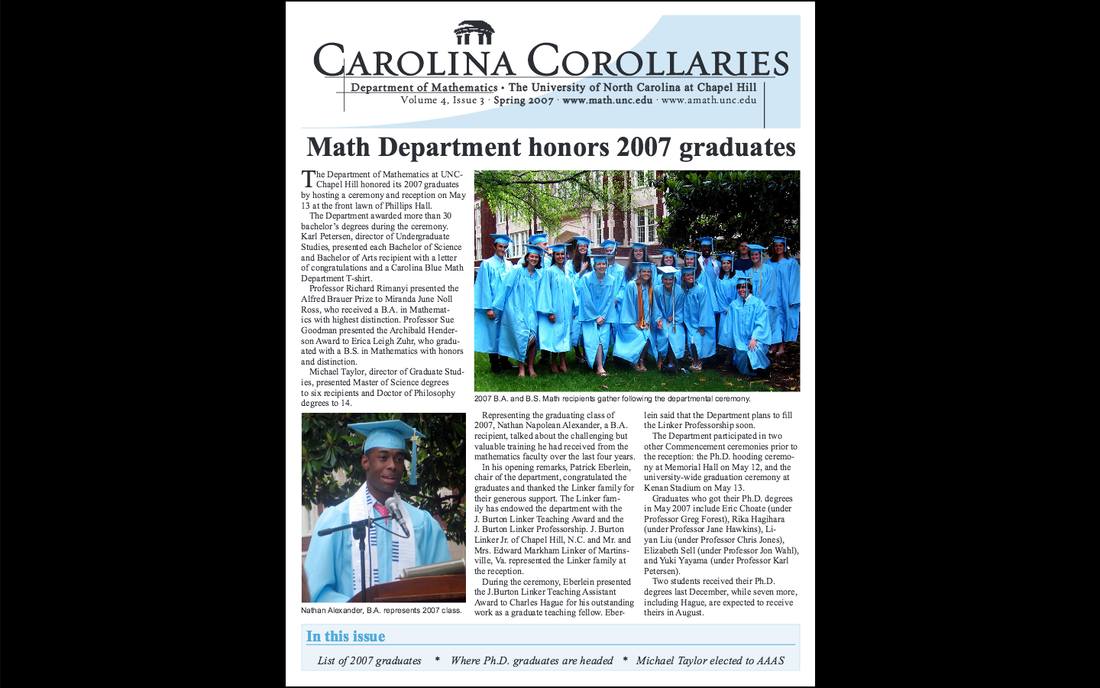Howard University faculty website: https://profiles.howard.edu/nathan-alexander
Current Research
Mathematical Models in the Sociological Imagination
What if we re-imagined the meaning of "social justice" as a practice of possibility, one grounded in critical care , using evidence and data to show folks when things are awry, and practicing healing with ourselves and in community with others. What happens when you throw mathematics (the formal) and sociology (the intuitive) into the mix? You get mathematical models in the sociological imagination.
Speculative fiction, Afro-futurism, and the Mathematical Sciences
Building on the work of critical race theory, the Black Intellectual Tradition, and the mechanics of modern systems of inequity that utilize computational and mathematical practices, this project explores the role of speculative fiction in education, and specifically mathematics classrooms. How does mathematics allow us to be critical in the process of being descriptive, corrective, and prescriptive?
Human x Digital Networks for Mathematics Learning
This project explores a hybrid mathematics laboratory model that focuses on communication and social networks to explore how Human x Digital Networks and tools inform and improve mathematics preparation, assessment, and conceptual thinking in undergraduate settings.
Selected Publications and Resources
Alexander, N. N., Appling, T., Banuelos, M., Bello, G., Brown, A., Century, J., Connor, K., Ji, H., Levy, R., Mitchell, P., Mongeau, D., Mysliwiec, M., Niu, J., Paykin, S., Quarkume, A., Schiffman, J., Skinner, L., Uminsky, D. & Zhong, P. (2024). Data Science for Social Impact in Higher Education: First Steps. Data.org Playbook. https://data.org/playbooks/data-science-for-social-impact-in-higher-education/
Jones, Q., Vindas Meléndez, A. R., Mendible, A., Aminian, M., Brooks, H. Z., Alexander, N. N., Diaz Eaton, C., Chodrow, P. (2023). Data science and social justice in the mathematics community. Notices of the American Mathematical Society, 70(9), 1479-1489.
Voigt, M., Hagman, J. E., Gehrtz, J., Ratliff, B., Alexander, N. N., & Levy, R. (Eds.) (2023). Justice through the lens of calculus: Framing new possibilities for diversity, equity, and inclusion. The Mathematical Association of America (MAA) Notes Volume.
Alexander, N. N., Ratliff, B., Levy, R., Voigt, M., Hagman, J. E., Gehrtz, J. (2023). Cross-cutting inquiries: Moving Towards a Systems-critical Practice. In M. Voigt, J. E. Hagman, J. Gehrtz, B. Ratliff, N. N. Alexander, & R. Levy (Eds.). Justice through the lens of calculus: Framing new possibilities for diversity, equity, and inclusion. MAA Notes Volume.
Alexander N. N., Diaz Eaton C., Shrout A. H., Tsinnajinnie B., Tsosie K. (2022). Beyond ethics: Considerations for centering equity-minded data science. Journal of Humanistic Mathematics, 12(2), 254–300.
Alexander, N. N., Eaton, C., Shrout, A., Tsinnajinnie, B. & Tsosie, K. (2022). Beyond Ethics: Considerations for Centering Equity-Minded Data Science. Journal of Humanistic Mathematics, 12(2), 254-300.
Alexander, N. N. (2022). A Legacy of Literacy: Mathematics Teachers and the Quests for Racial Justice. In D. C. Hucks, Y. S. Ruiz, V. Showunmi, S. C. Carothers, & C. W. Lewis (Eds.), Purposeful Teaching and Learning in Diverse Contexts: Implications for Access, Equity and Achievement (pp. 3-23). Charlotte: IAP.
Voigt, M., Ellis Hagman, J., Gehrtz, J., Ratliff, B., Alexander, N. N., & Levy, R. (2021). Justice through the lens of calculus: Framing new possibilities for diversity, equity, and inclusion. arXiv preprint arXiv:2111.11486.
Alexander, N. N. (2019). Daija's awakening: Critical race theory and afrofuturism in mathematics education. In J. Davis & C. C. Jett (Eds.), Critical Race Theory in Mathematics Education, pp. 56-74, New York: Routledge.
Alexander, N. N., Teymuroglu, Z., & Yerger, C. R. (2019). Critical conversations on social justice in undergraduate mathematics. PRIMUS: Problems, resources, and issues in undergraduate mathematics studies, 1-34.
Adiredja A, Alexander N. N., & Andrews-Larson C. (2016). Conceptualizing equity in undergraduate mathematics education: Lessons from K-12 research. In: Fukawa-Connelly T, Infante NE, Keene K, et al., editors. Proceedings of the 19th Annual Conference on Research in Undergraduate Mathematics Education, Pittsburgh, PA. p. 60–73.
Leong, K. E., & Alexander, N. N. (2014). College students attitude and mathematics achievement using web-based homework [sic]. Eurasia Journal of Mathematics, Science and Technology Education, 10(6), 609-615.
Alexander, N. N. (2013). Gender inequality: Mathematics. Sociology of Education: An A-to-Z Guide, SAGE Publications, Inc.
Alexander, N. N. (2012). Choosing a college [Mathematical modeling using preference matrices]. In H. Gould, D. Murray, & A. Sanfratello (Eds.), Mathematical Modeling Handbook: Vol. 1, pp. 39-48. New York: COMAP.
Gholson, M. L., Bullock, E. C., & Alexander, N. N. (2012). On the brilliance of Black children: A response to a clarion call. Journal of Urban Mathematics Education, 5(1), 1-7.
My Research Gate profile is located here
My Google Scholar profile is located here
